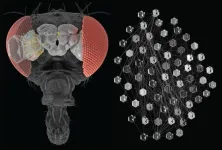Regions of the genome associated with Alzheimer’s disease and dementia in African populations will be presented at the Future of Dementia in Africa conference on September 11-12, 2024. The studies highlight discrepancies compared to Caucasian populations and underscore that a lack of diversity in genomic studies potentially limits the effectiveness of targeted therapies across diverse populations.
The Future of Dementia in Africa conference will take place at the J.W. Marriott Hotel in Nairobi, Kenya. It is a Nature Conference, convened by the Davos Alzheimer’s Collaborative and the Aga Khan University Brain and Mind Institute.
Henry Houlden from University College London, UK and colleagues in India and Nigeria will share clinical examples of ALS in African and other diverse populations and preliminary results on their genetic analysis of the first 1,000 patients with Amyotrophic lateral sclerosis (ALS) and ALS-dementia and diverse African, Central and South Asian backgrounds.
ALS is a fatal type of motor neuron disease that can cause cognitive changes that can lead to symptoms of dementia. The team focuses on two common genetic causes of ALS and related disorders — C9orf72 expansion and SOD1 mutation, which are currently the focus of trials for new treatments for ALS. They employed state-of-the-art long-read sequencing techniques to identify population-specific variants in these two genes. This work is important for ALS and ALS-dementia patients worldwide and the researchers are actively looking for other project partners.
The preliminary results for an ongoing genome wide association study (GWAS) of Alzheimer’s disease in a Nigerian population will also be presented by researchers from UCL and the University of Lagos. The analysis found a negligible effect from APOE4 — a major genetic risk factor for Alzheimer’s disease in people of European descent — in their cohort of nearly 1,200 individuals.
The study also identifies unique, disease relevant regions of interest in this population, and emphasises how diversification of GWAS studies holds the promise of uncovering more universal knowledge about neurodegenerative diseases that will better serve all populations.
Henry Houlden, Professor of Clinical Neurology at UCL, who was involved with both studies, said: “We are excited to share our data with researchers at the Future of Dementia in Africa conference, because people in African populations are underrepresented in research into dementia and other neurodegenerative conditions. We are keen to expand our network and carry out further genome-wide association studies in different populations, to identify new risk factors and advance treatments through work with clinical teams.”
Njideka Okubadejo, Professor of Neurology at the University of Lagos said: “Disease genetics are not uniform across populations and it is crucial that genetic research extends beyond European populations so we can develop more effective treatments. In order to achieve this goal, genetic research must also be more inclusive and accessible to more researchers.”
“These studies exemplify why we champion diverse genetic research in dementia. Each insight brings us closer to revolutionizing Alzheimer's prevention and treatment globally. This conference marks a pivotal step towards inclusive, effective solutions for brain health across all populations,” said George Vradenburg, founding chairman, Davos Alzheimer’s Collaborative.
Dementia is a growing public health challenge around the world, with an estimated 150 million people expected to be living with the disease by 2050. Africa is no exception: an estimated 2.13 million people were living with dementia in sub-Saharan Africa in 2015, increasing to 3.48 million by 2030 and 7.62 million by 2050.
Africa faces unique challenges in addressing dementia, including limited resources, varying levels of healthcare infrastructure, and a need for greater awareness and education. This conference represents a pivotal moment for the continent, offering a chance to consolidate efforts, share knowledge, and develop strategies tailored to Africa's specific needs.
Mie Rizig, Senior Clinical Research Fellow at UCL, who is on the scientific committee for the Future of Dementia in Africa conference said: “Global partnerships are crucial for enhancing neurodegenerative research productivity in low- and middle-income countries, particularly in Africa. We are thrilled to see these promising data from teams at UCL and Nigeria and eagerly anticipate more successful collaborations arising from this conference.”
The Future of Dementia in Africa conference aims to address key issues and share latest research on the epidemiology of dementia, including contributing risk factors, genetic advances, clinical trials, early detection, and diagnosis.
About the Davos Alzheimer’s Collaborative The Davos Alzheimer's Collaborative (DAC) is a pioneering worldwide initiative to cure Alzheimer’s disease and improve brain health, seeking to mirror the success of global efforts against infectious diseases such as HIV/AIDS, Covid, and Malaria. DAC is extending global research beyond its current focus on traditional Western European ethnic populations into the highly diversified populations of the Global South, where the vast majority of those with Alzheimer’s live. By introducing lower-cost screening and diagnostic tools as well as new treatment and prevention modalities in primary care and community health settings, DAC is driving implementation of health system solutions that are appropriate for worldwide application. DAC also promotes the vital importance of brain health throughout the lifespan by addressing cardiometabolic and lifestyle factors, especially in early and mid-life. Absent effective action at scale around the world, by 2050, more than 150 million families and half a billion people will be personally impacted by dementia, creating a social, financial, economic, and global security disaster of historic proportions. DAC was launched in Davos in 2021 by the World Economic Forum and the Global CEO Initiative on Alzheimer's Disease. For more information, please visit: davosalzheimerscollaborative.org.
About the Aga Khan University Brain & Mind Institute The Brain and Mind Institute (BMI) at the Aga Khan University, operates in East Africa and Central/South Asia. BMI’s ethos is to span from neuron to the neighborhood, and across multi-country campuses. The operational model is to empower and strengthen neuroscience and mental health research and interventions through capacity building and partnerships; connecting the rich tapestry of academics, research entities, stakeholders, and communities of lived experience. BMI facilitates interdisciplinary research, education and innovation in mental health and neurosciences. Through transdisciplinary research approaches, BMI aims to impact the lives of people who are affected by debilitating neurological and mental health problems. Whether it is uncovering the causes of illness or advancing breakthrough research into treatments or interventions, BMI’s approach is always mindful of the local needs of the people and communities at risk.
Nature Conferences Nature Conferences are events tailored to the international scientific community to foster communication and collaboration between scientists at various research levels. Held in face-to-face and virtual formats, a multi-disciplinary schedule of events is launched each year in partnership with leading industry and institutional organizations in the scientific field globally. As part of the world-renowned Nature Portfolio of journals, editors carefully curate event programs to create immersive experiences that blend cutting-edge research with insightful discussions. The Nature Portfolio of journals is home to Nature—the leading international weekly journal of science first published in 1869— and to selective subject-specific journals including Nature Medicine, Nature Aging, Nature Communications and Communications Medicine. Together, these journals publish some of the world's most significant scientific discoveries. Nature Portfolio, its journals, and Nature Conferences are all part of Springer Nature.
END





